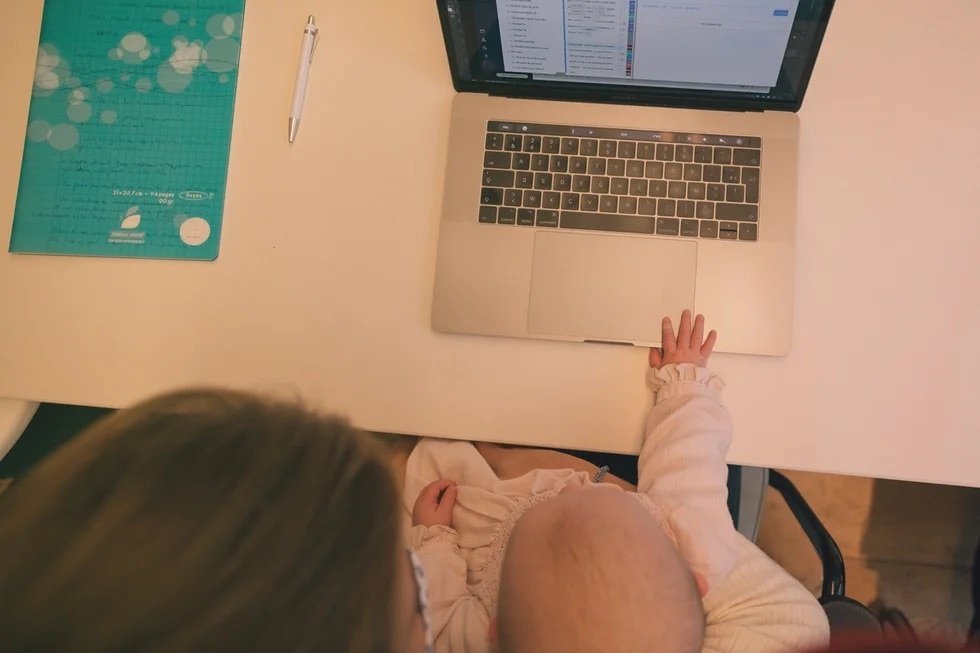How working parents can set themselves up for success
04 juil. 2024
4min


Freelance writer and podcast producer
The question of how working parents should balance career and family obligations is not new. Over the last half-century, more and more women entered and remained in the workforce after having children, and men began taking on more responsibilities in the home, leaving many parents wondering how they should prioritize things. In the era of hybrid and remote work, when employers can reach their employees at all hours, even outside of the office, figuring out how to juggle it all can seem more difficult than ever before.
If this feels relatable, Daisy Dowling, executive coach and Founder & CEO of Workparent, feels your pain. She became an expert in strategies to help working parents survive and thrive out of what she calls “desperate personal need.” As she was navigating the intersection of parenting and work, she became frustrated that there wasn’t any tactical “what to expect” type of guide for working parenting. So she set out to talk to people who’d done it before, conducting research with parents from various career paths to distill their wisdom and practical experience. The result is her book, Workparent: The Complete Guide to Succeeding on the Job, Staying True to Yourself, and Raising Happy Kids.
At wit’s end
In her coaching practice, Dowling spends a tremendous amount of time talking to working parents who don’t feel that they have the support they need. “The parent feels like ‘I am doing absolutely all that I can [at work at and home] and then some, and I’m failing somehow.’”
While feeling overwhelmed is completely understandable (there is more on working parents’ plates than there was before they became parents), the feeling of guilt and failure “is not a position from which anybody can deliver their best workplace performance, or be the loving, nurturing parent they really wish [to be].” As Dowling points out, that feeling of failure is just a feeling, not necessarily reality. Moreover, it’s probably coming from isolation and insufficient communication from an employer.
Time to get tactical
In order to help get things under control, Dowling advises people to “think ruthlessly about their schedules.” For example, if your child needs an extra 15 minutes at daycare drop-off to get settled, that’s not a cause for stress – just make sure that you build that extra time into your schedule, and block it off on your calendar. Or if being home for bathtime is important to your family’s rhythm, build that into your work schedule too, and be willing to make up the time elsewhere. Making clear decisions on what your family’s routine is – and when you have to be offline – puts you in control of your schedule.
“The negative thing I see happening is people get too much into improv mode.” If you haven’t made a clear decision on how your routine needs to change to make time for your family obligations, it can be difficult to hold firm when, for instance, a colleague asks for help on an important matter in the middle of bedtime. “[A parent might be] thinking, ‘Important issue. Okay. Let me make myself available.’ Then it’s 7:30 and they’ve missed bedtime, and they’re feeling terrible.” On the other hand, if that parent instead asked for a call later that evening, or the next morning – and explained that their time is blocked off, and why – everyone gets what they need.
Flexibility isn’t one-size-fits-all
In this new, post-COVID age of remote and hybrid work, it’s easy to assume that employees enjoy more flexibility. However, while remote work can feel helpfully flexible for working parents in some jobs, it’s not a panacea. For some parents, flexibility can mean being able to fully separate work and home. For others, it could mean the ability to schedule shifts for advantageous times for the family.
The biggest thing, explains Dowling, is that flexibility can come in many forms, “and you really have to think about which pattern or flavor you want, otherwise, it doesn’t work for you.” So, what kind of flexibility works best for your family? Or at least, what works best for your family right now, understanding that it might change as your children get older?
Don’t go it alone
Many working parents – especially new parents – can feel lonely in this new experience. Dowling’s advice? “Get connected with other people who are a little bit further down the working parent journey.” Talk to working parents at your organization, or in your field, who have kids a bit older than yours. Ask them for their advice, and about their experience – “because immediately it will normalize 95% of what you’re dealing with.”
This is also where a good manager can come into play: ask your boss to connect you with other people in the organization who are also parents, or join an Employee Resource Group to connect with other parents. The balancing act can’t be avoided, but the isolation can.
What managers can do to help
Organizations implement a variety of programs (think: a speaker series) and policies (think: paid leave) to support working parents. More importantly, says Dowling, are the practices – implicit or explicit – that they put into place.
Practices come from the top, so if you’re a manager or senior executive who wants to see your organization become more working-parent-friendly, start talking! “Allude to the fact that you yourself have personal responsibilities outside of work. [Normalizing this] cascades down through the organization because everybody looks up and plays along with whatever the top brass does.”
Your life is different now – your work needs will be too
Finally, remember that just because your role was perfect for you before you became a parent, it might not still be a perfect fit. Dowling says she sees a lot of parents in hands-on roles – in law or client services – who no longer can or want to be on call for their clients 24 hours a day. Maybe this is still what you want and you can make it work for your family – that’s great!
If it’s not, there might be a different role that’s still demanding and allows you to practice at the top of your profession… but that doesn’t carry the same type of pressure, freeing you up to be more present at home. “It’s not a failure to [do] that type of role. It is something that allows you to knit together the important pieces of your life.”
Key Takeaways
- Get granular with your calendar and set clear boundaries with work so you have time to be there for the important moments with your family – whatever those are to you.
- Figure out what flexibility means to you and your family, and find a role that allows it.
- Ask for guidance and seek community – you’re not the only one going through this!
- Your life with kids will be different than your life before kids. That’s not a bad thing, and if it means you need to find a different role that works better for your life now, do it!
Photo: Welcome to the Jungle
Follow Welcome to the Jungle on Facebook, LinkedIn, and Instagram and subscribe to our newsletter to get our latest articles every week!

Inspirez-vous davantage sur : Notre relation au travail

There’s no place like home: Does relocation hurt productivity?
Relocating often brings homesickness, but it’s part of the journey. Here’s how to embrace the change and make the most of it.
22 oct. 2024

Should you take your office crush to the next level?
Is an office crush worth the risk, or more damaging to your career and reputation than you think?
09 oct. 2024

Young workers on unpaid internships: Was it worth it?
While internships build skills and connections, unpaid ones can limit opportunities for those who can't work for free. Is it fair?
12 sept. 2024

Sleeping less to succeed more: Do CEOs sleep as little as we think?
In today's fast-paced corporate world, a common belief is that successful leaders, particularly CEOs, need less sleep to achieve their goals.
26 août 2024

The do's and don'ts of working remotely on vacation
Can you truly combine work and vacation? With remote working becoming more popular, many are exploring their options.
18 juil. 2024
La newsletter qui fait le taf
Envie de ne louper aucun de nos articles ? Une fois par semaine, des histoires, des jobs et des conseils dans votre boite mail.

Vous êtes à la recherche d’une nouvelle opportunité ?
Plus de 200 000 candidats ont trouvé un emploi sur Welcome to the Jungle.
Explorer les jobs